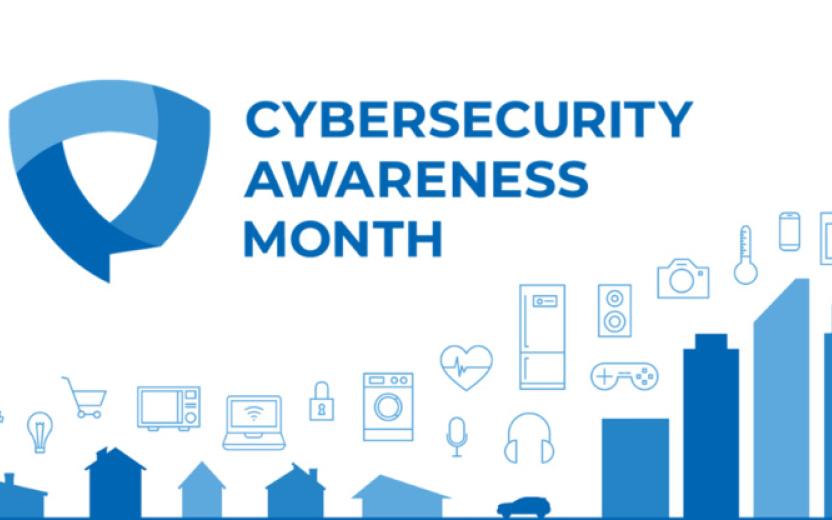Latest News

National Cybersecurity Awareness Month is held every October to raise awareness and ensure that everyone has the resources they need to stay safer and more secure online. The Internet touches nearly every aspect of our daily lives. When we all take steps to protect our connected devices and data, we all benefit.
Cornell has signed on as a Champion for the 17th annual campaign. The theme for 2020 is "Do Your Part. #BeCyberSmart." and encourages personal accountability and being proactive to ensure information privacy and security. Join IT@Cornell and the IT Security Office as we host events and share best practices for keeping you and your devices safe.
To kick off this year's campaign, we focus on simple steps you can take to protect yourself online.
Learn more: Security Practices When Working from Home and Tools for Working Remotely
If You Connect It, Protect It
Protect your personal information, connected devices, and university data. Cornell VPN provides secure remote access to campus IT resources from anywhere when needed. Certified Desktop is available to protect computers with anti-malware, encryption, and backups.
Enable or expand stronger authentication. Two-Step Login adds an extra layer of security to your Cornell NetID and password. Plus, enabling two-factor authentication on your personal accounts protects them even if your password is compromised. Use 2FactorAuth to find sites that offer stronger authentication, like Google, Facebook, and Twitter. Give your accounts a security checkup.
Make your passwords long and strong. This is easier when you use passphrases. A strong passphrase is a sentence that's at least 12 characters long. Use a password manager like LastPass to simplify your online life and remember all your passwords on any device. #BeCyberSmart and set a unique password or passphrase for each account. Sign up for LastPass, available for all current Cornell students, faculty, and staff.
Keep your devices and apps up to date. Manufacturers and software developers often patch security holes in their products, but they only work if you apply them. Stay current with notifications on your computer and mobile devices informing you of updates waiting to install, and act as soon as they're available. Plus, configure the privacy and security settings of your apps and devices. Most devices default to the least secure settings.
Think before you click. Links in email and online posts are often how cybercriminals trick people. If a link or attachment looks suspicious, even if you know the source, confirm before clicking!
Share with care. Use social media safely. Before you share online, think about how you'd feel if that information were to end up somewhere you didn’t intend. When you visit new websites, take an informed approach to determine whether or not they're reputable.

Comments?
To share feedback about this page or request support, log in with your NetID